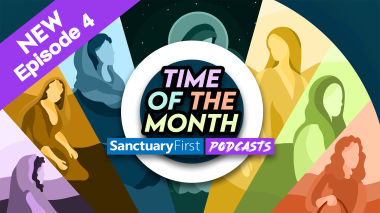Could God want something new to happen? (Part 1)

It is plain for all to see that traditional models of church, are beginning to break apart, and for many there is a sense of foreboding that the future of the church is in jeopardy as buildings lie empty, and others are turned into housing complexes or restaurant chains.
It's easy to become despondent and question the sustainability of the Christian faith in a culture that seems disinterested in the ordinances of religion, certainly promoted by our mainline churches.
This of course is the wrong perspective, we actually need a change of mindset.Tempting as it might be it is simply not biblical. It may be logical, especially if we think the current model is the only one, but we should know by now God’s plans and outcomes are completely different from the way we humans understand things. Perhaps all this is happening because God wants his people to be involved in a new thing.
We can only make judgements from our limited lifespan experience and memory. God’s judgements and perspectives focus on horizons beyond our ken. Yet even with limited knowledge, if we take time to reflect upon our lives, surely we must agree that change and development happens continually. Therefore why should it not affect the way we organise ourselves as church.
I think we should view this period of transition as something to be welcomed not feared. Perhaps we should see ourselves as privileged to be the custodians of what has to be retained and taken forward into the new area of church growth and development.
There has been much talk about the church appointing pioneer ministers, but the reality is that every one of us who bears the name of Christ must surely have a pioneering mindset. So let’s run for a moment in this blog post with the pioneering model.
The successful pioneer knows what is essential for the journey and also has the courage to know what to leave behind. So what are the essentials needed to be local church? Is it possible to make a list of the marks of a healthy worshipping community? Surely it is going to be different for each new situation in which the church finds itself? There are elements of truth in this kind of questioning but I have reached the conclusion it is still possible to articulate essential elements of our communal DNA as Christian believers.
Last month we considered the importance of food and hospitality in all of our lives. Surely this then is an essential ingredient that cannot be lost from the life of the church. Julie Barr in her blog post last week spoke of the warm memories of her grandmother’s home, centred around food and welcome. Memories that have clearly shaped the way she lives and uses her home. We too leave memories in the minds of those who attend worship. How we speak and behave and offer hospitality makes a lasting impression.
 So when it comes to church buildings, do we really need them if we have our homes? Bearing in mind the first Christians didn’t really have church buildings like we have today. It is obvious from reading the accounts of the growth of the ‘Early Church’ that they grew in number, but they didn’t build buildings as such, it would appear they used the public buildings of the day. Paul for instance tells us that he preached daily for two years in Ephesus using the lecture hall of Tyrannous. It’s interesting to note that some of the worshipping communities that are growing today have the model of small connect groups meeting in homes and cafes then coming together to meet in the local school.
So when it comes to church buildings, do we really need them if we have our homes? Bearing in mind the first Christians didn’t really have church buildings like we have today. It is obvious from reading the accounts of the growth of the ‘Early Church’ that they grew in number, but they didn’t build buildings as such, it would appear they used the public buildings of the day. Paul for instance tells us that he preached daily for two years in Ephesus using the lecture hall of Tyrannous. It’s interesting to note that some of the worshipping communities that are growing today have the model of small connect groups meeting in homes and cafes then coming together to meet in the local school.
If we were to summarise what they are doing. It would seem their model is fellowship first, built around food and welcome, creating a sense of belonging, which then, opens the way for trust and the ability to explore faith which leads to the place of belief and commitment. Perhaps this is where Sanctuary First should be heading as we seek to make touching places where people can begin to be welcomed and nurtured. In my next blog post I’m going to consider how we could develop our Sanctuary First Connect Groups.
Very Rev Albert Bogle, Minister of Sanctuary First




 Add to Favourites
Add to Favourites







Login to comment.